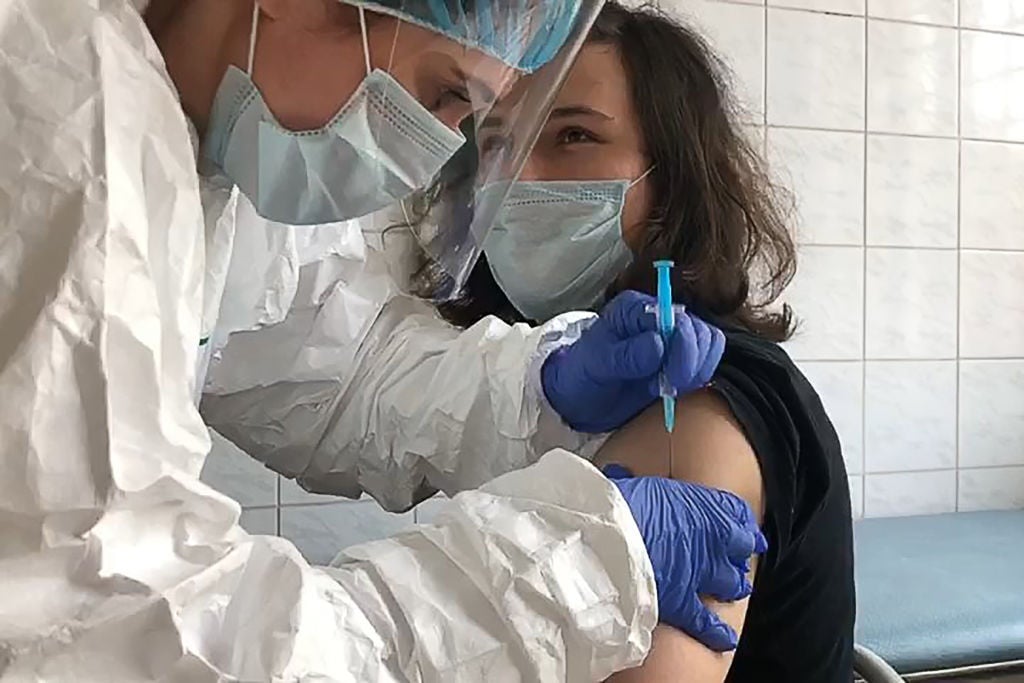
India's confirmed coronavirus cases crossed the three million mark Sunday with nearly 70 000 new infections, as the disease continues to surge in the world's second most-populous nation, reports AFP.
The health ministry said 69 239 cases were detected on Sunday, with 912 deaths taking the total number of fatalities to 56 706.
Many experts say, however, that the real scale of the infection is much higher.
Authorities in New Delhi said last week that an antibody study in the megacity suggested more than a quarter of the capital's population had contracted the infection.
Indian Prime Minister Narendra Modi's government imposed one of the world's strictest lockdowns in late March that has been mostly eased in recent weeks.
But the epidemic has left Asia's third-largest economy reeling, and tens of millions of people have lost their jobs and livelihoods.
Individual states and cities have imposed localised lockdowns -- including Haryana and Punjab, where cases have spiked in recent weeks.
Previously the main hotspots have been the teeming megacities of New Delhi and Mumbai, home to some of the world's biggest slums.
"At the moment we are seeing a fairly sharp rise in cases overall for India," said K Srinath Reddy, of the non-governmental Public Health Foundation of India.
13 crushed to death as Peru police raid party
Reuters reports that at least 13 people were crushed to death or asphyxiated as playgoers tried to flee a Lima nightclub raided by police because it was open in violation of restrictions imposed to fight the coronavirus pandemic, officials said.
At least six were injured, including three police officers, as around 120 people tried to escape the Thomas Restobar club on Saturday night as police arrived to break up a party on its second floor, national police and government officials said.
Neighbours had alerted police about the raucous event at the club in the Los Olivos district of the Peruvian capital.
"In these circumstances when people begin to fight to get out, it's tumultuous, everyone goes against each other," Orlando Velasco of the National Police told local radio station RPP.
An Interior Ministry statement said the revellers tried to squeeze en masse through the only entrance door and became trapped between the door and a staircase leading to the street.
Police detained at least 23 partygoers, the ministry said.
Peru ordered the closure of nightclubs and bars in March and banned extended family gatherings on 12 August to fight what is Latin America's second highest Covid-19 infection rate, according to a Reuters tally. A Sunday curfew is also in effect.
Peru had recorded a total of 585 236 coronavirus cases as of Saturday, double the number reported on 2 July while the known death toll has risen to 27 453.
Russia plans vaccine output of 6 million doses a month
Reuters reports that Russia expects to produce between 1.5 million and 2 million doses per month of its potential Covid-19 vaccine by the year end, gradually ramping up production to 6 million doses a month, the RIA news agency cited industry minister Denis Manturov as saying on Sunday.
Large-scale testing of the vaccine, developed by Moscow's Gamaleya institute, is due to start in Russia next week.
German lawmakers flag private party ban as cases rise
Reuters reports that Germany should temporarily ban private parties, several lawmakers suggested on Sunday, after the number of coronavirus infections in Europe's largest economy reached a four-month high.
The number of confirmed cases in Germany rose by 2 034 to 232 082, data from the Robert Koch Institute (RKI) for infectious diseases showed on Saturday, the highest level since late April. The reported death toll rose by seven to 9 267.
"We must not risk that day care centres and schools will close again and that children are forced to remain at home for weeks because we have accepted higher infection rates due to lax rules at family parties," Saskia Esken, co-leader of the Social Democrats, told the Frankfurter Allgemeine Sonntagszeitung (FAS) newspaper.
Ralph Brinkhaus, leader of the CDU/CSU conservative parliamentary bloc, said: "Unfortunately since the start of summer a certain recklessness has spread."
The remarks come ahead of a planned meeting of Chancellor Angela Merkel with the premiers of Germany's federal states on Thursday to discuss a unified approach to the next steps.
"Private festivities are a great danger," Ursula Nonnemacher, health minister of the state of Brandenburg, told FAS, adding there was a real risk of "hard contact restrictions" should new infections continue to rise.